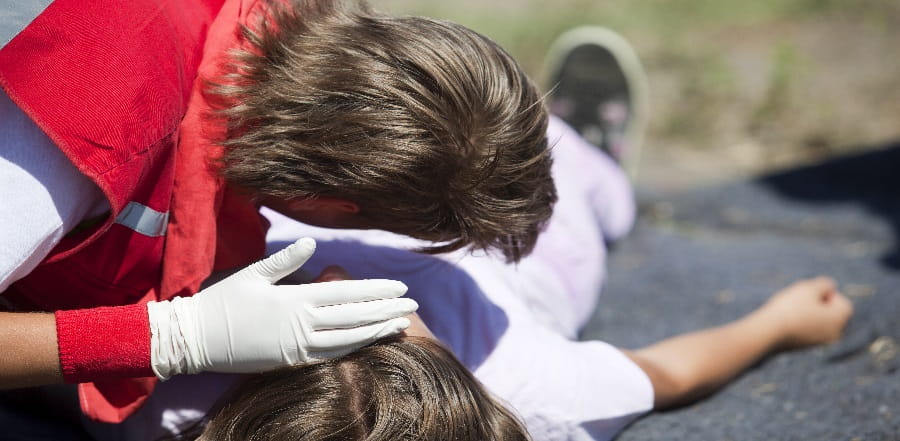
Research shows that concussions are extremely serious and could be life threatening, particularly for those who have suffered a concussion multiple times.
The signs and symptoms of a concussion may occur immediately or they may develop slowly over several hours. When attempting to treat someone with a suspected concussion, it's important that you try to find out exactly what has occurred. Just because someone with a head injury may look fine, doesn't necessarily mean that they are.
What is a concussion?
A concussion is a traumatic brain injury caused when an individual receives trauma to the head. The trauma causes the brain to 'shake' inside the skull, which may not cause any outwardly visible signs.
Cause
The brain is a soft organ cushioned by cerebrospinal fluid. This fluid protects the brain from everyday knocks and bumps. However, when an individual receives a high impact blow to the body or head (such as a car crash or sporting impact), the cerebrospinal fluid cannot cushion the brain adequately, causing the brain to shake with the forceful impact.
Such an injury will affect the brain's ability to function, commonly for a short period of time, with symptoms developing either immediately or shortly after the incident.
Symptoms
The signs and symptoms of a concussion aren't always visible and may be difficult to recognise. Symptoms may also be delayed depending on the type of injury.
Typical symptoms include:
- Altered consciousness
- Dizziness
- Nausea
- Vomiting
- Headache
- Blurry or double vision
|
- Ringing in ears
- Temporary loss of consciousness
- Feeling / sensation of pressure in the head
- Amnesia
- Delayed response to questions
- Fatigue
|
Some symptoms, however, may not appear immediately and may include:
- Difficulty concentrating and memory complaints
- Irritability
- Sensitivity to light and noise
Treatment
If someone has a suspected concussion and is unconscious, call 000 immediately and commence CPR or DRSABCD.
Treatment for a concussion depends on the severity of the injury. If someone has a suspected concussion, it should be treated immediately by a medical professional.
The first thing you should do is assess the patient. If the patient is unconscious, lay them on their side in the recovery position, call 000 and commence CPR if they aren't breathing. If the patient is conscious, place them in a position that is comfortable for them. Ensure that you protect the neck from movement and maintain a clear airway.
You should then provide care and treat any additional wounds while keeping constant watch over the patient until a medical professional or ambulance arrives. During this time, monitor the patient's breathing, pulse and consciousness for any signs of deterioration. It is also extremely important to maintain the patient’s body heat with clothing or a blanket.